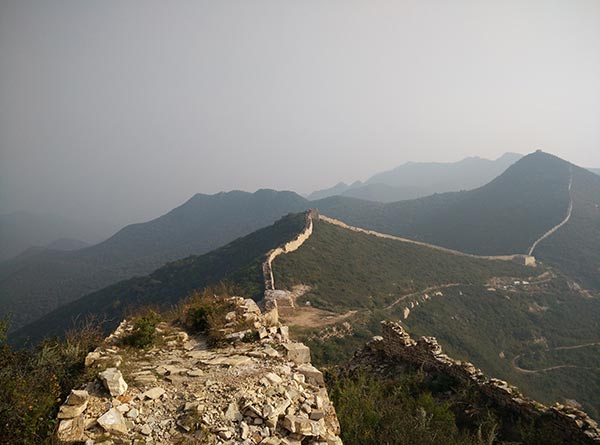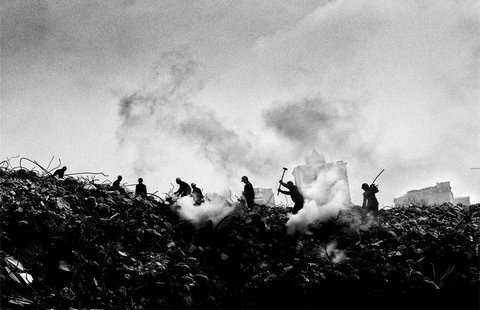 |
|
The Great Wall in Hebei province is facing challenges of time and neglect, but local authorities are trying to change the situation. [Photo by Wang Kaihao/China Daily]
|
Wang Gang leads local efforts to preserve the Great Wall in Zhangjiakou, which is a city in northern China's Hebei province. He and a tiny team from the municipal administration patrol some 1,800 kilometers of the Wall that zigzags through mountains, in practices that have been going on since 2013, with four major patrols a year and each lasting a minimum of 45 days.
Wang expects data updating of the Wall in Zhangjiakou to be completed in the next three years. The expansion of construction activities in urban and rural areas of Zhangjiakou has made it necessary to have regular patrols of the Wall, he says.
Most Great Wall remains in Hebei are from the Ming Dynasty (1368-1644), when parts of the Wall were built to defend against the Mongol threat from the north. For example, the 3-km-long Yangbian Great Wall, a section in Huailai county, was built during the reign of Hongwu (1368-98) as a model for other locations in China to follow.
But a part of that section collapsed due to neglect. Broken rocks scattered in the wild grass below and no crenels survived, though they were said to have been 1.5 meters high. Years have passed without any restoration of the Yangbian section.
"The Wall is still collapsing," says Li Dingyuan, director of Huailai County Museum. "Each year, there are several new collapsed sites."
From the 1950s to 1980s, many people from the surrounding villages took bricks away from the Great Wall to build their own houses, Li recalls. And although the situation has been almost reversed today after sustained appeals to protect cultural heritage, time has been a greater challenge to overcome.






















 Raymond Zhou:
Raymond Zhou: Pauline D Loh:
Pauline D Loh: Hot Pot
Hot Pot Eco China
Eco China China Dream
China Dream China Face
China Face





